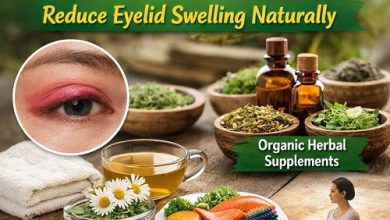High Blood Pressure Crisis? New Guidelines Put Half of U.S. Adults at Risk

A seismic shift in how clinicians define high blood pressure – lowering the threshold from 140/90 mm Hg to 130/80 mm Hg – changed more than just a number. It reclassified tens of millions of people, transforming what had been a “one-in-three” problem into a condition that now affects nearly half of U.S. adults. That reclassification has sparked debate: some experts hail the change as a chance to prevent heart attacks, strokes and dementia earlier; others warn it may medicalise a large swathe of the population and strain health services. What the guideline change means, why it happened, who it affects most, and what practical steps people and health systems can take next.
What changed — and why it matters
Until 2017, most clinicians used 140/90 mm Hg as the working definition of hypertension. New guidance from the American College of Cardiology and the American Heart Association lowered that cut-off to 130/80 mm Hg and introduced clearer categories for “elevated” blood pressure and stages of hypertension. The rationale was straightforward: large clinical trials and long-term studies showed that cardiovascular risk begins to rise at lower blood-pressure levels than previously believed, and lowering blood pressure earlier can reduce the chance of heart attack, stroke and other complications.
That change didn’t merely tweak a guideline footnote. It reclassified an enormous number of people as having hypertension. Analyses carried out after the guideline update estimated the prevalence of hypertension under the new definition at roughly 45–47% of U.S. adults — up from about 32% under the older definition. In plain terms, nearly half the adult population now falls into a category that requires clinical attention: at minimum advice about lifestyle changes, and for some, medication.
Who got reclassified?
The newly labelled group is not only older people. A big chunk of those added under the 130/80 cut-off are younger adults — people in their 30s and 40s who previously sat in the “high-normal” or “prehypertensive” band. Studies have shown that even modest elevations in blood pressure during young adulthood are associated with higher cardiovascular risk later in life. Identifying these adults earlier gives clinicians a chance to recommend lifestyle measures well before organ damage occurs.
The reclassification also highlights inequities: men, older adults and some racial and ethnic groups have higher prevalence and lower control rates. For example, data from recent national surveys show higher rates of hypertension among men and higher prevalence in non-Hispanic Black adults compared with other groups. This means the burden is not evenly distributed and that targeted public-health action is needed.
Does more diagnosis mean more medication?
No — not automatically. One of the key clarifications in the guidelines is that a diagnosis of hypertension does not always translate into immediate drug treatment. Many people with readings in the 130–139/80–89 mm Hg range are advised first to adopt and sustain lifestyle interventions: the Dietary Approaches to Stop Hypertension (DASH) diet, sodium reduction, regular physical activity, weight loss where appropriate, limiting alcohol and stopping smoking. Medication is generally recommended when lifestyle changes fail to control blood pressure or when a person’s overall cardiovascular risk is high. Several analyses showed that while prevalence rose substantially with the new threshold, the proportion of adults recommended for antihypertensive medication rose only modestly.
However, in practice the new label matters. It makes clinicians and patients sit up and plan: lifestyle prescriptions become official clinical recommendations rather than optional advice. For some people, especially those with additional risk factors (diabetes, established heart disease, chronic kidney disease), clinicians will start medication sooner. That earlier intervention can be lifesaving — but it also raises questions about resource allocation, medication adherence and long-term follow-up.
The public-health angle: prevention, not panic
Public-health advocates see the guideline change as an opportunity. Hypertension is the single largest modifiable risk factor for cardiovascular disease worldwide, and untreated high blood pressure quietly causes strokes, heart attacks, heart failure and kidney disease. The earlier clinicians and public-health services can identify people at risk, the greater the chance of preventing irreversible damage. To that end, many health authorities and campaigns emphasise detection (accurate measurement in clinic and at home), population interventions (reducing salt in processed foods, promoting active travel) and equitable access to affordable care.
The message from health systems is often framed as “prevention first”: encourage home blood-pressure monitoring, train clinicians and community health workers in correct measurement technique, and roll out programmes that make lifestyle change easier and more accessible. For example, supporting community exercise schemes, subsidising healthy food options and providing smoking-cessation resources all play a role.
The clinical controversies
Not everyone welcomed the lower threshold. Critics worry about medicalising a large portion of the population and putting pressure on systems already stretched for time and money. Others point to measurement variability — a single clinic reading can misclassify people — and argue that without proper confirmatory protocols (multiple readings, ambulatory or home monitoring), the new definition risks over-diagnosis.
There are also debates about the optimal blood-pressure target for different patients. Some trials suggest lower targets provide added protection, while others show diminishing returns or higher risks (for example, falls or adverse medication effects) in frail older adults. The consensus in most guideline documents is to individualise treatment: consider age, frailty, comorbidities and patient preferences when setting a target.
The role of accurate measurement
A recurring technical point is that how you measure blood pressure matters enormously. Cuff size, patient posture, recent activity or caffeine intake and the skill of the measurer all affect readings. Because many people will now fall into the hypertensive range based on the lower cut-off, the guideline emphasises standardised measurement protocols and recommends multiple readings — ideally including home or ambulatory measurements — before labelling someone hypertensive. This reduces the risk of false positives and avoids unnecessary treatment.
Real-world impact: control rates remain low
Even with a larger diagnosed population, control remains a problem. National monitoring programmes show that only a minority of people with high blood pressure have it under adequate control. For example, recent estimates suggest that roughly one in four adults with hypertension have their blood pressure under control. Low control rates are the result of many factors: lack of diagnosis, poor access to care, medication non-adherence, clinical inertia and social determinants of health such as poverty and lack of healthy food or safe spaces for exercise. Improving control is arguably more important than simply expanding the diagnostic label.
What this means for individuals
If your blood pressure reading is 130/80 or higher, don’t panic — take it as an invitation to action. Steps you can take immediately include:
- Get repeat measurements (at different times and ideally at home) before accepting a diagnosis.
- Ask your clinician whether ambulatory or home monitoring would help confirm your readings.
- Adopt proven lifestyle changes: reduce salt, follow a balanced diet such as DASH, be physically active, limit alcohol and manage weight.
- If your overall cardiovascular risk is high (for instance, you have diabetes or established heart disease), discuss the risks and benefits of medication with your clinician.
- Keep a record of home readings and bring them to appointments — accurate, repeated measurements are worth their weight in gold.
These are pragmatic steps that can reduce risk and may obviate the need for medication in many people.
What clinicians and health services should do
For clinicians the priorities are clear: measure correctly, confirm with out-of-office readings where possible, prioritise lifestyle interventions and tailor medication decisions to the patient’s overall risk and preferences. Health services should invest in community screening programmes that include clear pathways to follow-up, improve access to affordable antihypertensive medications, and address social determinants that make healthy living difficult for many people. Population-level interventions — such as reducing salt in packaged foods and promoting active transport — remain some of the most cost-effective measures to shift the risk curve.
The broader picture: cardiovascular risk is more than one number
Blood pressure is a powerful marker, but it’s one piece of a larger risk puzzle that includes cholesterol, smoking, diabetes, age and family history. Modern care increasingly uses overall cardiovascular-risk calculators to decide who should receive medication, rather than relying on blood pressure alone. That nuanced approach helps ensure that medication is targeted to those most likely to benefit while encouraging lifestyle change for the many whose immediate risk is lower.
Final thoughts: a chance to prevent, not to panic
Lowering the numerical definition of hypertension to 130/80 mm Hg has important consequences. It brings earlier attention to people who stand to benefit from prevention and helps clinicians identify risk sooner. But it also places a responsibility on health systems to measure correctly, prioritise lifestyle and equity, and avoid reflexive over-medicalisation. For individuals, the takeaway is practical and empowering: know your numbers, measure them properly, and act early. Small, sustained changes in diet, activity and other behaviours can substantially lower risk — sometimes without medication. For those who do need drugs, modern treatments are effective and widely available; the challenge is ensuring everyone who needs them actually gets them and adheres to treatment.
If you or someone you care for has concerns about blood pressure, the sensible next step is a conversation with a clinician — ideally bringing a week’s worth of home readings — so you can make a shared, evidence-based plan. Early detection paired with sensible, sustainable prevention is the best route out of what looks like a crisis on paper and into a long-term improvement in population health.




